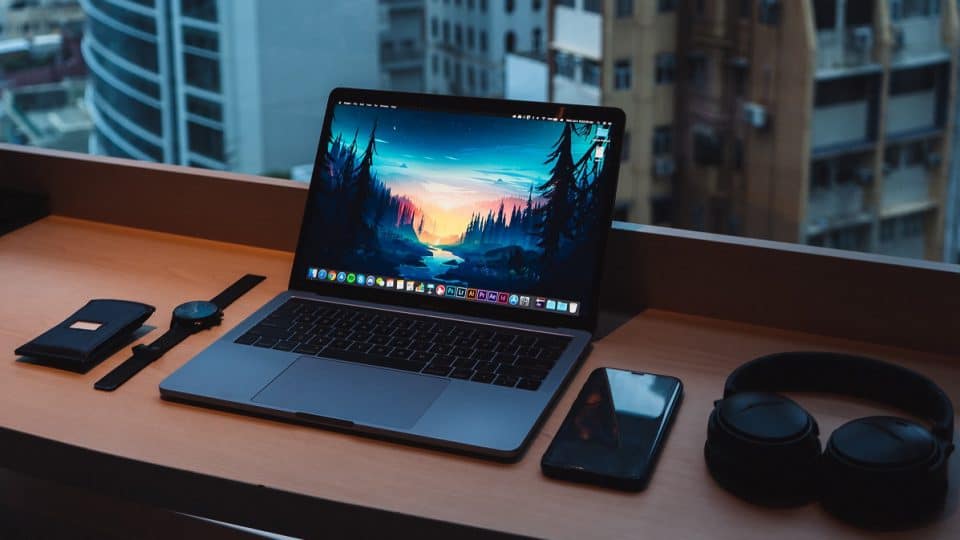8 Ways to Never Lose Your Class Notes
Each of us has probably heard sad stories about whole archives of documents, photos, or any other files disappearing after reinstalling Windows, getting a computer virus, or spilling drinks on the laptop. Of course, the stored files are valuable. Among them could be the notes you made for the exam or in-depth research you have worked on for years.
If our laptops work without failures, we don’t pay attention to the correct archiving. However, all your data might be lost right before an important test because of some tragic situation. That is why we have compiled a list of 8 ways to never lose school notes and avoid unnecessary stress.
Table of Contents
Use External Storage
Even if your computer is well protected, a sudden power surge can cause significant damage. Therefore, it is always worth copying crucial files to another storage to quickly restore them if necessary. This is probably the most simple but effective solution.
If all recent semester’s notes are on your hard drive, why not make a backup copy on an external drive? Just buy a USB drive or memory stick and save all the necessary data on it. We recommend doing it once or twice a month, as this will make your archives much more likely to survive.
Sometimes, however, even saved notes are not enough to do your homework correctly. You can easily find writers that will understand what you need. If you ever need help from essay writing service EssayPro, all you should do is open the website and write the order details. Just specify the essay type, degree, deadline, and any notes you have, and your job is done. As a result, your timetable is less busy, and your academic performance stays on par.
Get a Cloud
Many believe this method is even simpler than the previous one because you don’t have to buy an external drive and store it somewhere. Turn to one of the popular cloud services like Dropbox, OneDrive, Google Drive, or something else. Their advantage is that they have a synchronization feature, allowing you to access copies on several devices at the same time. On the other hand, you have to make regular payments to store large amounts of data. In addition, the copying speed is often far from what a simple external hard drive offers.
Mac Time Machine
Let’s admit it, copying files by hand takes some time, or we can simply forget about it. Fortunately, Mac has had an automatic file backup feature for a long time. It allows you to recover deleted files, no matter if you did it yourself or they were lost due to the cleanup on your Mac’s hard drive.
To create backups using Time Machine, you simply need an external drive. So, once you plug it in and select it as your backup drive, Time Machine will automatically make daily backups. You can set it to archive the past month and do weekly backups for the future. The oldest backups get deleted as the storage becomes full.
Built-in Windows Backup
The backup feature is also available in Windows, but only a few use it. Its capabilities are the same as on Mac: it analyzes files, copies everything that has changed to the drive you’ve chosen, and allows you to review it by date. So, finding a lost file and even a specific version of it will be super easy.
Protect Your Computer
As the popularity of laptops grows, the number of thefts is increasing too. That is why we recommend not leaving computers unattended in public places or cars. Therefore, hard drive encryption must always be enabled, and the user account must be protected with a good password.
Your date of birth or the simple QWERTY key combination creates a password vulnerable to hacking. A strong one should be a mix of lowercase and uppercase letters, numbers, and special characters like @,%, #. This way, you’ll make it difficult for a criminal to gain access to data located on the computer.
Fight Against Viruses
Sooner or later, we all face computer viruses. They can steal personal data or even completely delete it from the drive. Luckily, there are many antivirus programs on the market: from Bitdefender or Norton to Trend Micro Antivirus and many others.
An annual subscription to such programs is quite affordable. In addition, you can choose any of their free versions. They usually lack certain features but provide essential system protection.
Also, be sure to have the latest version of the operating system, browser, and office suite.
The C Drive Isn’t for Documents
Never store your notes on the C drive (C:), as it’s intended for system data and programs. For convenience and safety, use the D drive.
Imagine that your laptop is an apartment consisting of a few rooms. Everything has its own place. You surely won’t keep shoes in the kitchen, and a kettle in the bedroom, will you? Likewise, you need to separate system files from your personal stuff.

Desktop Isn’t for Storing Files As Well
Never store files and folders on your desktop. The thing is, the desktop is also on the C drive, which means you may lose all of its contents if you reinstall the operating system. Of course, it is convenient to keep essential documents on display, but really, it’s just a trap.
To Sum It Up
Imagine reading such a depressing headline: “The professor’s laptop with a single copy of a profound research has been stolen.” What would you think of when reading this note? Perhaps the professor must be in despair and very angry with himself. Let’s admit it – it’s foolish to keep essential data on a computer without making backup copies.
Students put a lot of time and effort into making their notes as detailed as possible. Meanwhile, the overwhelming majority of users keep their documents in a single copy and believe that the data is completely safe. However, we want you to avoid their mistakes and use one of the methods (or better several ones) mentioned above. After all, your work on the notes was definitely not in vain.


